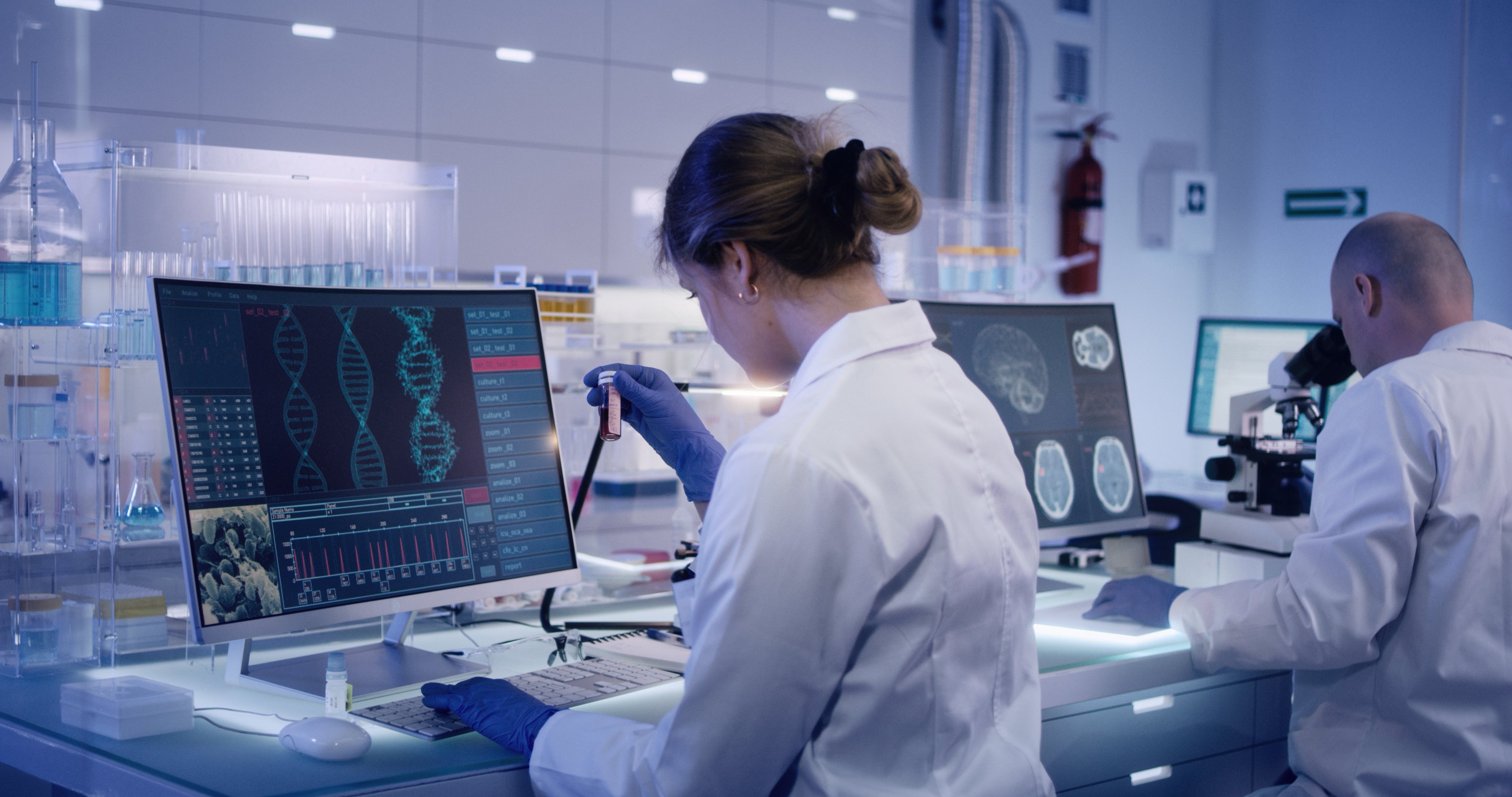
Image source: Puma Biotechnology via Google Maps.
Recently, Puma Biotechnology (NYSE: PBYI) management hosted a conference call to discuss its breast cancer drug, neratinib. In the call, CEO Alan Auerbach updated phase 3 trial results and offered up guidance for the company's future plans for the drug, including its upcoming filing for FDA approval.
The details
Previously, Puma Biotechnology had reported a 33% reduction in risk of invasive disease recurrence or death for patients taking neratinib relative to placebo. The study evaluated the use of neratinib in 2,840 early-stage HER2 positive breast cancer patients who had undergone surgery and one year of adjuvant treatment with Roche Holdings (RHHBY +2.33%) Herceptin
After completing Herceptin therapy, patients were randomized to receive neratinib or placebo for one year and were then followed to measure disease recurrence or death for two years. At the two-year mark, the disease-free survival rate was 93.9% in the neratinib group and 91.6% in the placebo.
Recently, Puma Biotechnology updated investors by providing three-year data showing a 26% reduction in the risk of invasive disease recurrence or death versus placebo and a disease-free survival rate for neratinib of 92% and 89.9% for placebo.
Why it matters
Up to 25% of early breast cancer patients have HER2 positive tumors that are associated with disease relapse and, as a result, Herceptin is used as an adjuvant therapy to standard of care alongside other drugs, such as docetaxel and carboplatin. In studies, Herceptin reduced relapse rates within three years by about half, delivering a disease-free survival rate of 86.7%.
Because the use of Herceptin therapy has become mainstream in these patients and that's helped turn it into a $6 billion-a-year blockbuster, neratinib's market potential could be big -- especially when we consider that breast cancer is the most common cancer diagnosed in women worldwide, with about 1.6 million new cases occurring every year.
Overcoming a hurdle
Investor enthusiasm has faded for neratinib in the past year partially because of a safety profile that includes a larger-than-expected number of cases of grade 3 diarrhea. In prior studies, 15% to 23% of neratinib patients suffered diarrhea considered to be grade 3, and because of that, it's possible that many patients will discontinue neratinib therapy, curbing sales.
On Puma Biotechnology's conference call, Auerbach reminded investors that diarrhea is common in cancer treatment and suggested that a rate of 20% wasn't a deal breaker. He also opined that a rate of 15% would be more attractive. Results from a phase 2 study that is investigating the use of Imodium alongside neratinib to help mitigate the risk of diarrhea should be available next year.
Looking ahead
Total spending on breast cancer therapies is expected to grow to $25 billion by 2020 from $16.5 billion in 2010 and Puma Biotechnology hopes that by offering even a slight advantage over traditional Herceptin therapy in this setting could turn neratinib into a $1 billion-per-year blockbuster.
That hope, however, will depend a lot on how the FDA views neratinib's safety and investors should get some insight into that in a year or so -- the company plans to file for approval of neratinib in the adjuvant setting early next year.







